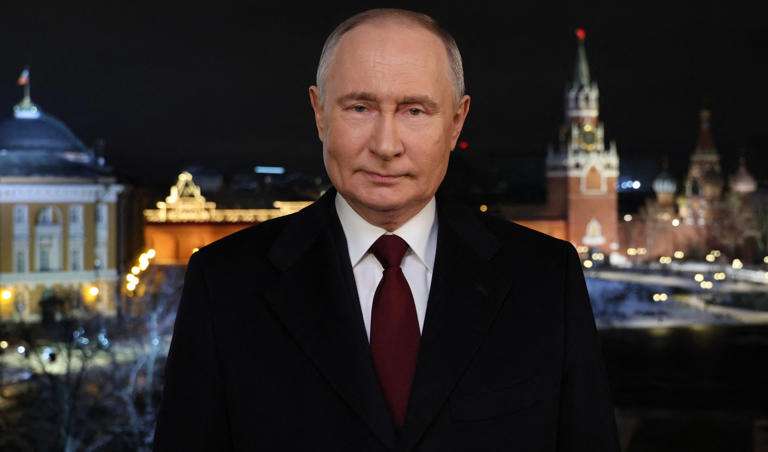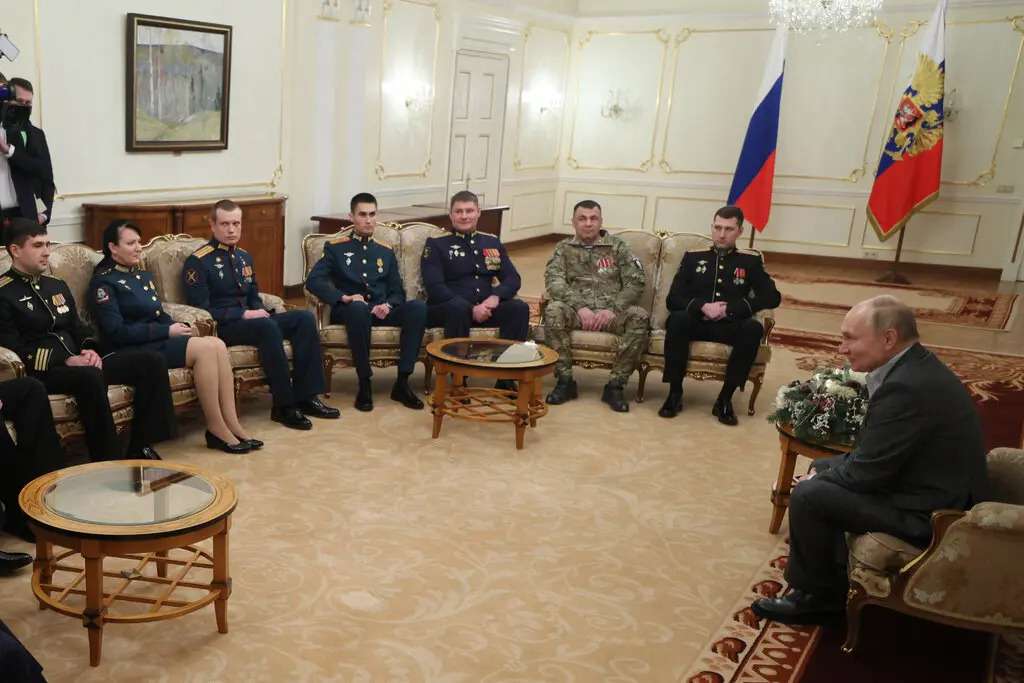In a televised address on Monday, President Vladimir V. Putin of Russia reaffirmed his commitment to continuing missile strikes on Ukrainian cities, citing retaliation for what he labeled a “terror” attack on the Russian city of Belgorod the previous week. Putin’s rare public comments on an attack within Russian territory coincide with recent intensified rocket strikes by Russian armed forces on Ukrainian cities, marking some of the largest assaults since the invasion began in February 2022. As both sides seek ways to break the stalemate on the battlefield, the cycle of strikes and retaliations raises concerns about escalating civilian casualties.
Putin’s Vow Sparks Intensified Russo-Ukrainian Conflict
During a meeting with veterans of the war in Ukraine, Putin claimed, “They want to scare us, to create a certain uncertainty inside the country. From our side, we will build up the strikes.” This statement underscores the psychological aspect of the conflict, with both nations attempting to assert dominance and influence public perception.

The recent exchange of attacks reached a tragic peak when Ukraine seemingly retaliated by bombarding Belgorod, resulting in at least 22 fatalities and nearly 110 injuries. This assault represents the deadliest single incident against a Russian city since the conflict’s onset. The Ukrainian government adhered to its policy of not publicly commenting on attacks within Russian territory, but an official from Ukraine’s intelligence services, speaking anonymously, claimed the strike aimed to counter Russia’s massive air assault on Ukrainian cities the preceding Friday, emphasizing that only military facilities were targeted.
Contradicting Putin’s assertion that Russian strikes exclusively target military facilities, Russia’s Defense Ministry stated that Ukraine’s attack on Belgorod was “indiscriminate,” accusing them of hitting the regional center, home to around 330,000 residents, with two missiles and several rockets. The conflicting narratives add another layer of complexity to an already volatile situation.
The aftermath of the attacks was visually harrowing, as paramedics were seen covering the bodies of victims in Belgorod, underscoring the human toll of the ongoing conflict. The international community is closely monitoring the situation, urging both sides to exercise restraint and engage in diplomatic efforts to de-escalate tensions.
As the year drew to a close on New Year’s Eve, a significant holiday for both Russia and Ukraine, Moscow extended its military actions to the eastern Ukrainian city of Kharkiv, located just 60 miles across the border from Belgorod. The assault, involving missiles and drones, wounded nearly 30 people and caused severe damage to a hotel, hospitals, and residential buildings, according to Ukrainian officials. The choice of targets indicates a strategic effort to disrupt essential services and infrastructure.
Also Read: Modi Declares World Eager for Ram Temple Consecration
The attacks persisted into the early hours of the New Year, with the Ukrainian Air Force reporting that Russia had launched a “record number” of attack drones—estimated at 90 in total—against Ukraine. Ukrainian forces claimed to have successfully intercepted most of the drones, but falling debris damaged civilian infrastructure and resulted in casualties.
In Odesa, a southern port city frequently targeted by Russian forces, a 15-year-old boy lost his life, and seven others were injured after debris struck a residential building. Additionally, in Lviv, falling debris sparked a fire in a local museum, highlighting the widespread impact of the conflict on civilian life and cultural heritage.
In response to the attacks on Belgorod, President Volodymyr Zelensky of Ukraine addressed the nation on Saturday, asserting that Putin and Russia would be held responsible for strikes in Odesa, Sumy region, Kyiv, and all other cities and regions. Zelensky hinted at retaliation, emphasizing both political and practical consequences for Russian actions.
